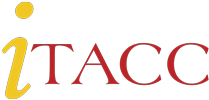Project Name
Civic Participatory Budgeting Project
Type of practice
Promising practice (practice is proven to achieve outcomes)
Other successful practice
Areas of Emphasis
Education and Early Intervention
Formal and informal community supports
Quality Assurance and training in self-advocacy, leadership, and self-determination
Project/activity year
2020
Population of focus
People with intellectual and developmental disabilities
Families of people with ID/DD
Service Providers
Policymakers
Strategies Used
Outreach
Training
Technical Assistance
Coalition Development and Citizen Participation (self-advocacy training, educating policymakers, and citizen leadership skills)
Project description
The focus of the project was centered on Participatory Budgeting and how it affects students receiving special education. The purpose of a civic participatory budgeting project is to include students with disabilities in leadership roles in a school budgeting initiative that determines what to purchase for the school at a set aside budget amount. Included in this school year process is forming a steering committee for planning, idea collection, proposal development, budgeting, campaigning, marketing and voting. The number of special education students chosen to serve on the steering committee was 13. School participatory budgeting events are high-impact, civic engagement learning that engage an array of partners.
The project increases student voices, collaboration, and critical thinking while helping youth develop the tools, pathways, and opportunities to contribute to their communities and civic life. ASU Center for the Future of AZ has implemented this project in four cities across Arizona, reaching thousands of students, but Carson Junior High School was the first school that participatory budgeting intentionally sought to include special education students, with a key research focus on inclusion.
The success of the project with an inclusive focus as a promising tool to help engage individuals with disabilities more fully in civic life, as outlined in Article 29 of the Convention on the Rights of Persons with Disabilities (CRPD) and the Individuals with Disabilities Education Act (IDEA).
The goals of this project were to implement a civic engagement, model practice project. ASU Center for the Future of AZ has taken the lead to implement participatory budgeting in Arizona schools. With this project, they were tasked to include SPED students throughout the entire process, at every decision-making process, and to track, report and publish a research paper on their findings.
In this inclusive project, students were engaged to “learn democracy by doing” by deciding how school funds are used to improve their school communities. They organized and led a process to cultivate ideas, develop proposals, and vote to fund improvement projects on their campus. Our partners were ASU Center for the Future of Arizona, youth with developmental disabilities, and Carson Junior High School staff and personnel.
Impact (or impact-to-date) of the project/activity for people with ID/DD and their families.
A toolkit was developed that will be shared with schools, as well as their research and data collection will be shared and published on a broader scale. This project led to the outcomes achieved of special education students showing an increase in self-determination and advocacy skills, such as leadership, public speaking, critical thinking and ultimately learning how decisions impact their school life.
The project is meaningful to all students, but especially to special education students and special education teachers because it gave them an opportunity to participate, have their voices heard, their ideas acted upon, and they learned why a civic project is important and impacts their life.
Comments frequently hear from special education students were, “PB make me feel more important because I help make decisions”; “I learned to have more courage and self-confidence”; “I was a loner and grew out of my shell”; “I learned to advocate for myself because I knew I had a good idea”; “This was the first time I was given a chance to make a difference”; and “I didn’t understand the purpose of voting and after I got to understand how voting changes lives and the world”.
Stories
Story perspective
Person with ID/DD
Family of a person with ID/DD
Partner [person or organization with an interest or concern about ID/DD issues]
What were things like BEFORE you/your family/partner/community participated in the project/activity?
Self-advocate comment: Before Participatory Budgeting, I would just go home and not really think about the problems I saw at school.
Family comment: Before participatory budgeting, my son did not have confidence in talking with his teachers.
Teacher comment: Students in special education were not confident speaking in public or giving presentations.
What are things like AFTER you/family/partner/community participated in the project/activity?
Self-advocate comment: After PB, I actually discuss problems, now I want to fix things at school.
Family comment: I did see a change in my son’s ability to talk with his teachers, before it was always hard, I think it gave him more confidence.
Teacher comment: We have observed increases in critical thinking skills, public speaking, presentation skills, and discussion and debate facilitation skills.
What was most beneficial to you/family/partner/community from participating in this project or practice?
Self-advocate comment: I feel more connected with the school/community and found my voice.
Family comment: Learning how to advocate for themselves is so important…especially with moving into high school…it is good for them to learn independence.
Teacher comment: The growth in knowledge and skills was incredible.
The role of the DD Council in achieving positive outcomes through this project.
The Arizona DD Council money that funded this project was everything! Investing and encouraging the ASU Center for Future of Arizona to expand their model project, participatory budgeting, to include students in special education so they could learning about the civic process shows that the Council is investing in our kids futures!
Contact Information
Name
Marcy Crane
Email
mcrane@azdes.gov
Council location
Arizona
